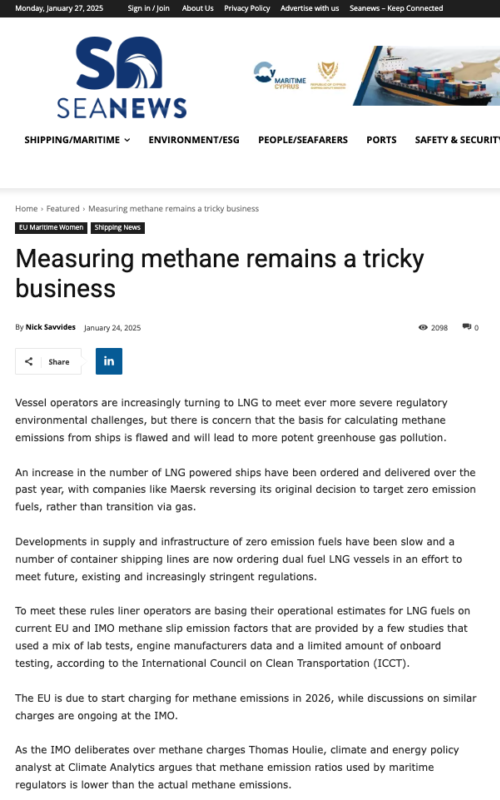Media coverage
Share


AP News
Report from IRENA finds 92.5% of electricity installed in 2024 came from renewables.If renewables grew 15% in 2024, "think how much faster they could grow with the full backing of comprehensive, credible and ambitious climate policies”, Dr Neil Grant told AP News.
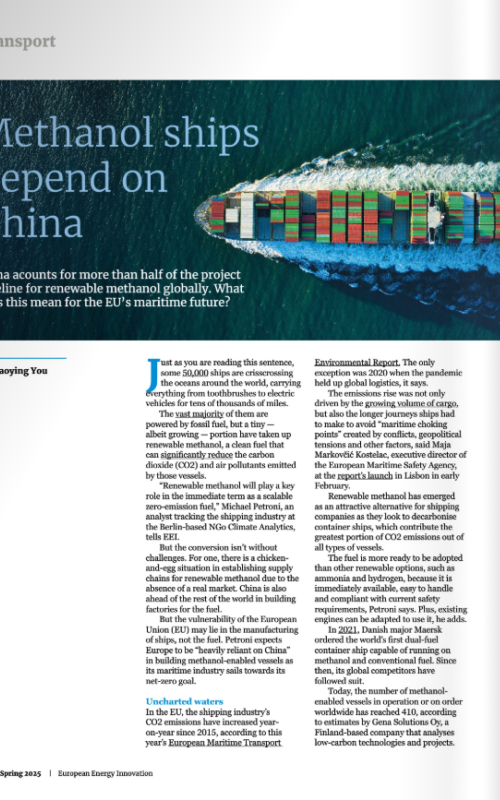
European Energy Innovation
"Renewable methanol will play a key role in the immediate term as a scalable zero-emission fuel," Michael Petroni told European Energy Innovation. Petroni said Europe is likely to be "heavily reliant on China" for building methanol-enabled vessels as its maritime industry sails towards its net-zero goal.

3CR Radio
Bill Hare spoke to 3CR radio on why fracking poses a serious risk to our climate.
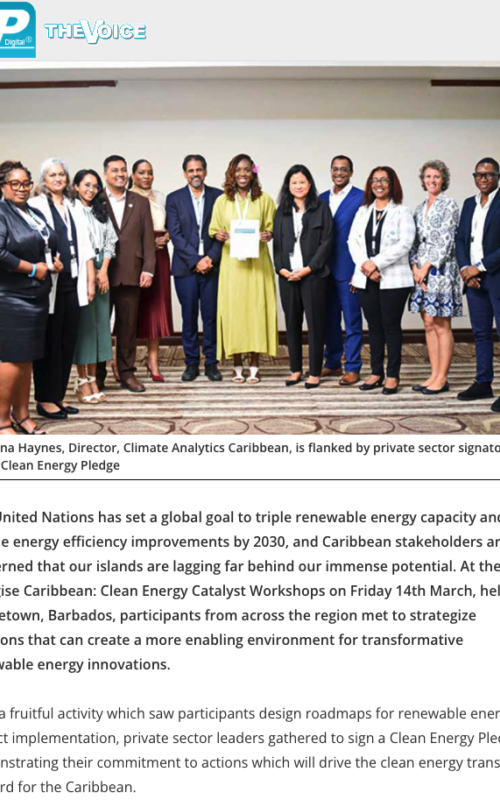
The Voice St. Lucia News
At the Re-Energise Caribbean: Clean Energy Catalyst Workshops on Friday 14th March – organised by Climate Analytics Caribbean – participants from across the region met to strategise solutions that can create a more enabling environment for transformative renewable energy innovations.
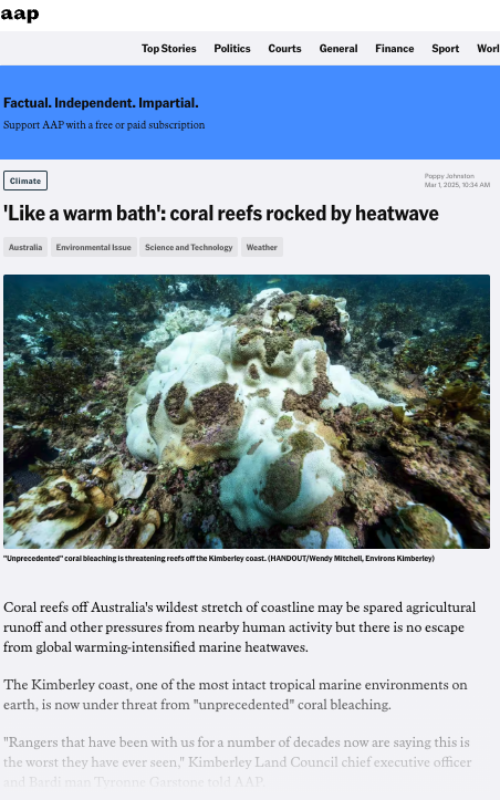
Australian Associated Press
"From the science, we've known for a very long time that even limiting warming to 1.5C global average mean is going be really bad for our reefs," Bill Hare told AAP following a coral bleaching event off Australia's Kimberley Coast. "We're going to lose a very large fraction of our tropical reefs."
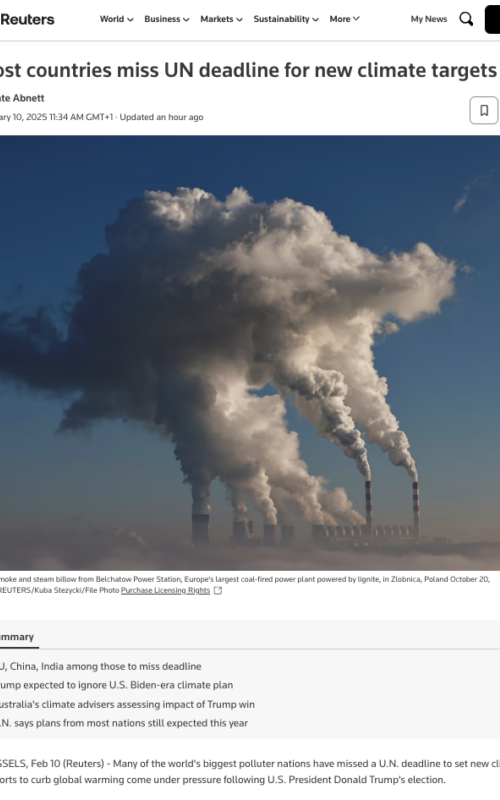
Reuters
Many of the world's biggest polluter nations have missed a U.N. deadline to set new climate targets. "The public is entitled to expect a strong reaction from their governments to the fact that global warming has now reached 1.5 degrees Celsius for an entire year, but we have seen virtually nothing of real substance," Bill Hare told Reuters.
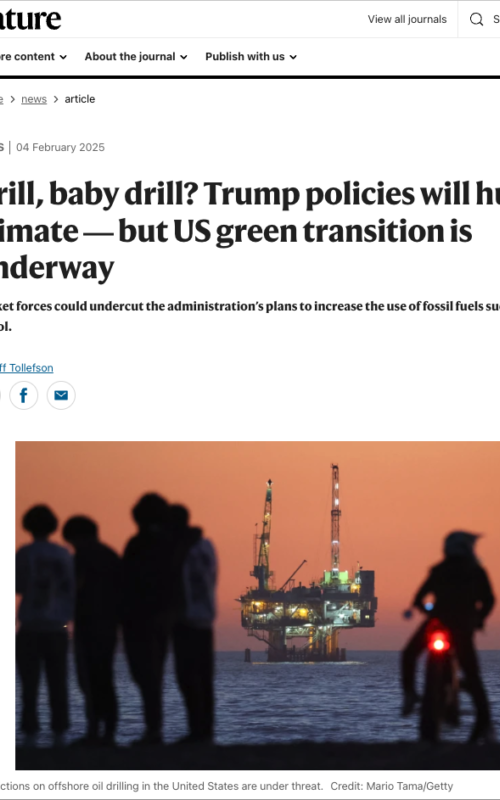
Natur News
“Trump is going to make the job of meeting our climate goals a lot harder,” says Bill Hare. Initial analysis from the Climate Action Tracker suggests that Trump's policies could raise cumulative US emissions by 2–4 billion tonnes of CO2 by 2030.
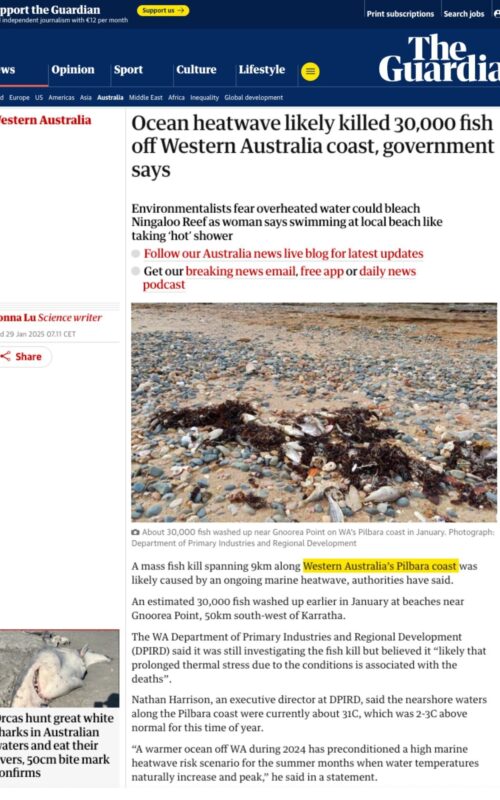
The Guardian
An estimated 30,000 fish have washed up dead along Western Australia’s Pilbara coast. Bill Hare told the Guardian marine heatwaves were known to trigger “extreme low oxygen events, which then create a bigger environmental mess”, though it was not yet clear whether low oxygen contributed to the death of these fish.

